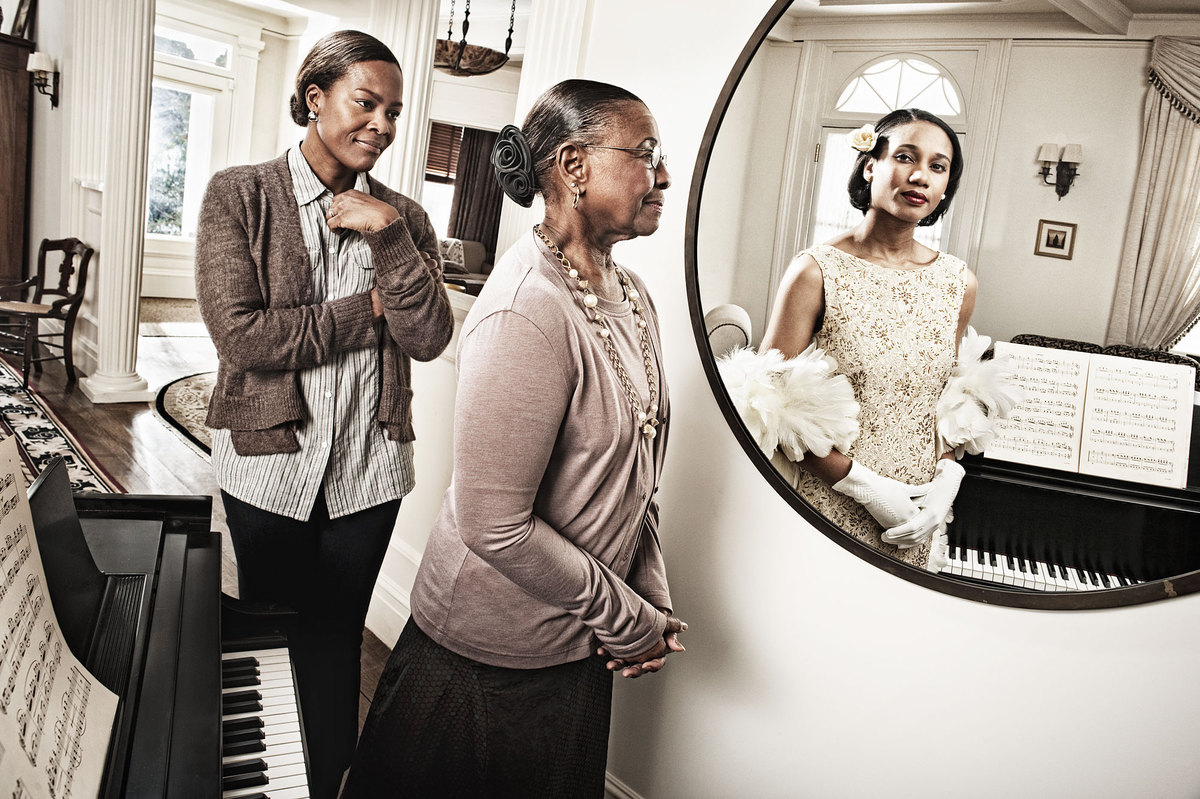This past weekend I visited family in Chicago, home of the famed Steppenwolf Theater, which has birthed numerous Broadway plays. My daughter-in-law treated me to a Steppenwolf matinee to see the trial opening of Tracey Letts’ new play, Mary Page Marlowe. It depicts the major events in an older women’s life: collegiate dreams to visit Paris, a mid-life divorce followed by single parenting, a tragic loss, chronic alcoholism, three marriages and finally a resurrection, where she makes peace with her past. Mary’s trials are balanced by humorous exchanges which ring true for the lives of most women.

The playbill cover for “Mary Page Marlowe,” depicting her young self full of uncertainty for what lies ahead.
The protagonist, Mary Page Marlowe, is acted by five different actresses–a bold directorial move that works–portraying important junctures in her life from the age of 12 to her last incarnation at 69. Her trip trough memory lane is not chronological, which I didn’t find problematic. It felt real in that my own reminiscing is random and all over the map.
Skimming through an old scrapbook, I’ll pause at photos of earlier decades, remembering those times when my marriage was happy or, conversely, when I struggled as a single parent. I’m propelled even further back on those nights when I dream of my 14 year old self.

An abstract image of a woman’s multiple selves by photographer, Luciana Urtiga
Before seeing Letts’ play I hadn’t thought about the importance of integrating my past selves as a cornerstone to finding peace of mind as an older woman. This message resonated in spades in the last act when five Mary’s, in silhouette, silently march across the stage behind the 69 year old Mary, now a confident older woman. It signaled to me that Mary had come home to herself.
A major trap many older women fall into when reflecting on their past is to get mired in regrets where they beat themselves up for past mistakes. Joan Chittister in The Gift of Years describes regret as “the sand trap of the soul.”
She elaborates: “The challenge of aging is to become comfortable with who we are, rather than to mourn what we are not . . . Unless we come to understand the value of the choices we made in the past, we may fail to see the gifts they have brought us.”
Another place where women get stuck in reviewing their past is to romanticize it, forgetting the struggles it contained. (I wrote about this in an earlier post: http://wowblog.me/are-you-guilty-of-romancing-the-past) Chittister hypothesizes that this tendency is rooted in our youth-obsessed culture, where our younger selves are viewed as preferable to our older selves.

An older woman longing for her youthful self. (Tom Hussey).
I’ve been guilty on both accounts. I still have to work to avoid these pitfalls, but I’ve largely forgiven my past selves for all their dumb, but well-meaning missteps. For me, self-forgiveness is key–not an easy task, since like most women, I’m expert at blaming myself. The ability to recognize the lessons in the error of my ways has made it possible for me to move on and shift out of self-blaming mode.